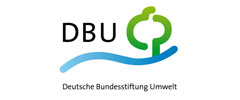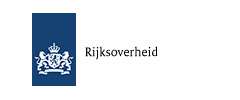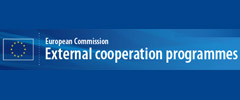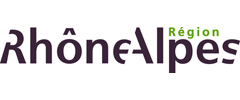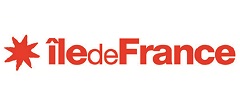60 mayors and 150 school teachers visiting Garla Mare
WECF projects in Garla Mare, Romania are visited by representatives from other communities. (Text in English and Dutch)
13.04.2006 |Irma Thijssen
60 mayors and the school inspectors from the Teleorman and Giurgiu districts visited Garla Mare op April 1st 2006. This was part of the “Water Programme”, a cooperation between the Romanian province of Teleorman and the provinces Overijssel and Gelderland, The Netherlands. The mayor of Garla Mare spoke at the official welcome, followed by speeches by Claudia Tulei of the local NGO GEOSAN, Margriet Samwel from WECF, and Stefan Deegener from University of Technology Hamburg (TUHH). The 60 mayors first visited the dry urine diverting (U.D.) school toilet building. Then they visited the new household dry U.D. toilet, build by GEOSAN with support of Fondation Ensemble. The U.D. school toilets were constructed 2,5 years ago in the framework of the MATRA project “Safe Drinking Water by WECF and in cooperation with his partners Medium et Sanitas and the TUHH. The dry U.D. school toilets serve as an example how sanitary school conditions can be greatly improved with little money in a village which does not have access to a sewage system. The dry urine diverting toilets protect the ground water against infiltration of bacteria and nitrates from excrements, which is the case with the commonly used pit latrines. The previous school pit latrines in Garla Mare were so dirty that children were defecating in the school yard. Children did not have possibility to wash their hands. A hygiene education and culture were completely absent. In addition to the new dry urine diverting toilets, WECF and M&S built 4 handwash basin, cleaned the well, installed a pump and a drinking water purification filter, so that the school children now also can wash their hands and drink water without excess levels nitrates and e-coli bacteria.
From The Netherlands, the Province of Overijssel, five Waterboards and a Drinking Water Company participated in the visit to Garla Mare. They are planning several Water and wastewater Projects in Teleorman and Giurgiu. One of their goals is to improve the treatment of wastewater in rural areas, by building ecological sanitation (EcoSan or U.D.) toilets and soil filters.
The Dutch delegation and the Romanian mayors are all very enthusiastic about the EcoSan toilets. They also discussed the Romanian regulation on this point. No one knew exactly if the Romanian legislation allows people to use urine and composted faecals on their land for agricultural use. The regulation mentions nothing about the use of sanitized urine and compost. This will be a subject for further investigation.

150 teachers visit international seminar in Garla Mare
The second NGO in Garla Mare, “Femei pentru Viitor curate” (Women for a clean environment FVC) organised its first international seminar for teachers (‘professors’) of the county Mehedinti on April 2nd. The topic of the seminar was hygiene, environment, waste and sanitation. 400 teachers subscribed to the seminar, and 150 teachers and school inspectors participated. All the teachers received a diploma and information materials about hygiene, health and sanitation. In Romania it is important for teachers to take part in such seminars, which helps them develop in their carreer.
First family dry urine-diverting toilet in Garla Mare
WECF and the local NGO GEO-SAN are carrying out a one-year project, building dry urine diverting toilets for some families and for the townhall. A further goal of this project is the development of an affordable solid waste management system. This project is co-financed by the French “Fondation Ensemble”.
From March 27 till March 31, Stefan Deegener from the TUHH (University of Technology Hamburg), has built the first dry urine diverting (EcoSan) family toilet in Garla Mare. The toilet was built in the courtyard, a small messy place where also the water well is located, chicken, ducks and goats walk around, and old building materials and food supplies are kept. The family could choose between a toilet inside the house or in the courtyard. They choose to build a separate toilet house, as they are used to, outside in the yard. First the old pit latrine was removed, and after that the new EcoSan toilet was built.
The urine diverting seat riser was locally made of concrete and by using a mold. The urine and faecals will be stored separately and sanitized and after that the products can be used in the agriculture, e.g. for crops such as maize. On the demand of the owner an additional urinal was placed in the toilet room. The toilet construction was done together with some men from the village, so that they can help other families in building their own toilets in the future.

Inspection of the school toilets
The school toilets in Garla Mare are built in 2003 and are now functioning for almost three years. The EcoSan toilets don’t need a drinking water supply or a sewerage system. They do not pollute groundwater like pit latrines do, hygiene is improved and a reduction of diseases is reached, and they also offer excellent fertilizer for use in agriculture. The EcoSan system functions perfectly. The urine tanks are quite full and in springtime, after a storage time of 6 month, the urine of one of the tanks will be supplied on a field for maize cultivation. There is no smell at all. The compost looks clean and also doesn’t smell. The compost looks like grey ashes.
The maintenance of the toilets, however, is not perfect. There is a lack on materials and financial means. There is a lack of clear responsibilities for repairing defects and for buying cleaning tools and detergents. So after almost three years the locks of the doors are damaged, screws disappeared, electricity wires are stolen, lamps are broken. In the last winter season the hydrophore for drinking water was unable to function during several months, the same goes for the pump for the handwash basins. Further there is a lack on appropriate cleaning products and tools. The available tools are over-used. Taking the circumstances in consideration the toilets are rather clean. But not clean enough to present to 60 visiting mayors. Therefore, the WECF and TUHH team together with the care taker have additionally scrubbed the toilets and tiles to make them shine for the visiting mayors.
Irma Thijssen
Margriet Samwel
WECF
60 burgemeesters bezoeken EcoSan Toiletten
60 burgemeesters en de school inspectrice uit de provincies Teleorman en Giurgiu hebben op 1 april Garla Mare bezocht, in het kader van een waterproject, een samenwerking tussen Giurgiu en de provincies Overijssel en Gelderland. Na een officieel ontvangst door de burgemeester van Garla Mare en de lokale NGO GEO-SAN, Margriet Samwel van WECF, en Stefan Deegener van de technische Universiteit Hamburg (TUHH) bezochten zij de EcoSan schooltoiletten en het nieuw gebouwde familietoilet. De schooltoiletten zijn 2,5 jaren geleden in het kader van het MATRA project “Safe Drinking Water”door WECF en de projectpartners Medium et Sanitas en de TUHH gebouwd. Het project eindigde in februari 2004. De toiletten dienen als voorbeeld hoe op een eenvoudige manier het grondwater tegen vervuiling door pit latrines kan worden beschermd en hoe zonder een waterleiding en riolering aansluiting hygiënische toiletten gebouwd kunnen worden.
De Nederlandse delegatie bestond uit vertegenwoordigers van de Nederlandse provincie Overijssel, vijf waterschappen en drinkwaterbedrijf Vitens. Zij willen in Teleorman diverse water en afvalwater pilotprojecten uitvoeren, waaronder enkele experimenten met afvalwaterverwerking in landelijke gebieden. Ecologische Sanitatie via EcoSan toiletten is een van de opties die zij willen toepassen. De Nederlanders en de Roemeense burgemeesters zijn enthousiast over de toiletten. Bij de discussie ’s middags blijkt dat zij regelgeving als belangrijkste probleem zien: mag je de urine en compost wel op het land gebruiken? Waarschijnlijk staat in de regelgeving dat mensen geen mengsel van urine en faeces in de tuin of in de landbouw mogen gebruiken, en staat er over het gebruik van ziektekiemenvrije urine en compost niets vermeld. Dit wordt nog uitgezocht.

150 leraren op internationaal seminar
De tweede lokale NGO uit Garla Mare “Femei pentru Viitor curate” (Vrouwen voor een schoon milieu, FVW) heeft op 2 april haar eerste internationale seminar voor onderwijzers (‘professors’) uit de provincie Mehedinti georganiseerd, over hygiëne, milieu, afval en sanitatie. Er waren 400 registraties en zo’n 150 deelnemers: leraren, schoolinspecteurs en twee vertegenwoordigsters van WECF. Alle geregistreerde en deelnemende leraren ontvingen een diploma en een informatiepakket over hygiëne, gezondheid en ecologische sanitatie. In Roemenië is voor leerkrachten het verkrijgen van een diploma voor verdere carrière of salarisverhoging belangrijk.

Eerste familietoilet in Garla Mare
In samenwerking met de lokale NGO GEO-SAN wordt momenteel in Garla Mare een eenjarig pilotproject uitgevoerd, waarbij enkele ecologische toiletten voor families en openbare toiletten en urinalen voor het gemeentehuis gebouwd zullen worden. Verder zal een concept voor de het managen van het lokale afval ontwikkeld worden. Dit project “Sustainable Development for All” wordt mede gefinancierd door de franse Fondation Ensemble.
In de week van 27 t/m 31 maart heeft Stefan Deegener van de TUHH (Technische Universiteit van Hamburg) het eerste EcoSan toilet (dry urine diverting) gebouwd voor een Roemeense familie. Het toilet is gebouwd in de tuin van de familie: een rommelig binnenplaatsje waar ook de waterput staat, waar kippen, eenden en geiten scharrelen, en afvalmaterialen en voedselvoorraad liggen opgeslagen. De familie kon kiezen: een toilet in huis of in de tuin? In de tuin natuurlijk, in huis, daar moeten ze niet aan denken. Omdat men alleen maar stinkende latrines kent. Eerst is de oude pit latrine gesloopt, en daarna is het nieuwe EcoSan toilet gebouwd. Het EcoSan zit-toilet is ter plekke met behulp van een vorm en cement geproduceerd. De urine en fecaliën worden gescheiden opgevangen en gehygiëniseerd, waarna de producten voor bijvoorbeeld maisteelt gebruikt kunnen worden. Op wens van de huiseigenaar is er ook nog een urinaal in het toilethuisje geplaatst. Een reservoir met water en een kraan geeft de mogelijkheid om na het gebruik van de toilet de handen te wassen. Het toilet is gebouwd samen met de man deze huizes en enkele andere mannen uit het dorp. Het is de bedoeling dat de mannen nu ook andere families kunnen helpen om hun eigen toilet te bouwen.
Inspectie schooltoiletten
De schooltoiletten in Garla Mare zijn in 2003 gebouwd en functioneren inmiddels 3 jaar. De toiletten hebben geen drinkwateraansluiting en geen riolering nodig. Ze beschermen grondwater, dat als drinkwater wordt gebruikt, zorgen voor betere hygiëne, minder ziektes, en ze leveren een goede mest voor de landbouw of tuin. Het EcoSan systeem werkt perfect. De urinetanks zijn gevuld en één van de 2 tanks zal na een bewaartijd van 6 maanden in het voorjaar voor de bemesting op een maïsveld uitgebracht worden. Er is geen stank of onaangename luchtjes. De fecaliën reservoirs zitten na 3 jaar nog niet vol, en ook hier is niks te ruiken, want na een defecatie wordt er een kop as of een mengsel van as en aarde toegevoegd. Het fecale materiaal ziet er schoon uit, als grijze as.
Het beheer van de toiletten verloopt echter niet zoals het was beoogd.
Geld en materieel ontbreekt om defecten te repareren of om schoonmaakmiddelen te kopen. De mensen nemen weinig initiatief, ook omdat de bevoegdheden of verantwoordelijkheden vaak onduidelijk zijn. De sloten van de toiletten zijn kapot, schroeven zijn verdwenen, de verlichting is gestolen. Na deze winter is de hydrofoor voor het drinkwater kapot gegaan, evenals de pomp voor het water van de wastafels. Schoonmaakartikelen zijn versleten. De beheerder van de toiletten staat er glimlachend maar wat hulpeloos bij met zijn schoonmaakartikelen: een half borsteltje zonder steel en een emmer met een stok met zwarte sliertjes eraan, het restant van wat ooit een mop was. Met de beperkte middelen die hij heeft, zien de toiletten en de tegels er nog goed uit. Water voor schoonmaak moet uit de waterput worden gehesen. Schoonmaakmiddelen en sponsjes voor een goede schoonmaakbeurt worden door Stefan gekocht en met z’n vieren - Stefan, Margriet, Irma en de beheerder - hebben we twee uur lang de toiletten geschrobt zodat het er weer mooi uitziet voor het bezoek van de burgemeesters.
Irma Thijssen
Margriet Samwel















